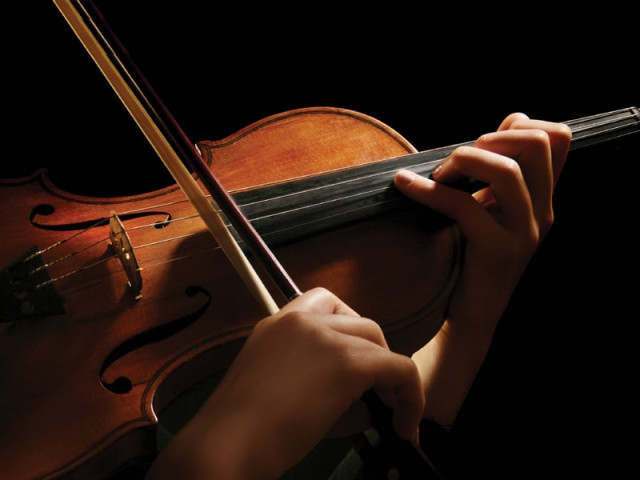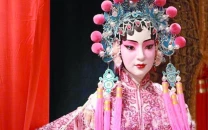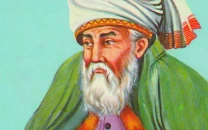Violin music: Fading melodies
Is the violin disappearing from the local music scene?

Inside Ghulam Ali Lohti Violin School in Siddiq Centre, a small group of students sit holding violins to their chins as their instructors guide them through a melody. Ghulam Ali Lohti has dedicated his life to promoting violin music in Pakistan and has taught at several universities and colleges.
“If one looks at Pakistan’s music industry, the violin’s popularity is minimal,” says Ali, who believes that his school is the first institute solely dedicated to teaching instruments belonging to the violin family.
The violin, according to local masters, is considered the king of orchestra music because an orchestra is incomplete without an instrument from the violin family. Ali explains that his school is dedicated to promoting the sound and art of the instrument to people who have little idea about the peculiarities of the violin. However, as most of the students want to learn it on an amateur level, there is little hope for the sustenance of the art on a professional level.
To avoid enrolling such students, Ali conducts a rigorous interview with the candidates before dedicating a staff of experienced music teachers. The interview includes questions regarding the candidates’ interests in the instrument and the reasons behind their decision to join violin classes.
Typically, a class during the school year accommodates around 10 people, but the strength crosses 20 during vacations. “Parents should encourage their children to join such classes,” says Ali. “There are many benefits of playing violin, as the activity is therapeutic as well.”
Ghulam Ali Lohti Violin School has also inducted several awareness campaigns celebrating the World Violin Day on June 17. The institute also organised a day dedicated to the violin-family instruments on August 27. Al-Hamra is another place offering basic violin classes in Lahore. The Guitar School started classes a year ago but because of the low response, the programme was scrapped.
Ali explains that in the past, the Pakistani film industry used to organise orchestras. Then there was EMI music, which had its own orchestra. After that, “Coke Studio” came up as the next instrumental step to promote the violin with soloist Javed Iqbal.
Iqbal, who is said to have introduced the electric violin in the country’s music scene through “Coke Studio”, says that the process of grooming talent to play the violin has changed drastically. Remembering his own experience, he says that in Lahore the process for learning the instrument was earlier connected to a close-knit orchestra community. Once the parents identified their child to have an aptitude for the instrument, they would find a teacher or ustaad to groom the trainee in all aspects of the violin, making the practice more like a full-time apprenticeship. Once the student was ready, there were three functioning orchestras in EMI, which would typically audition for violin players. Even if an aspiring violinist did not get into those groups, there was enough freelance work available for the musicians. EMI’s era began in 1967 and continued till 1982, says Iqbal.
“Now there are three to four solo violinists in Pakistan,” adds Iqbal, who has countless stories of the once-burgeoning classical music scene in Pakistan. “There has been a renewed interest in the violin after ‘Coke Studio’, but that was only possible through a producer like Rohail Hyatt.”
Iqbal believes that the much of the development of classical music is currently being done by Sachal Studios, with their recent orchestra in Lahore. The first recording, which was undertaken in 2003, can be considered a bastion for symphony orchestra in Pakistan. Their albums have been known to have a classical mixture of eastern and western music.
“Sachal Studios has become another place for classical musicians to work,” says Iqbal. “The major thing is that people are finding work but these violinists have to ensure that the talent is passed on.”
Published in The Express Tribune, July 6th, 2011.



















COMMENTS
Comments are moderated and generally will be posted if they are on-topic and not abusive.
For more information, please see our Comments FAQ